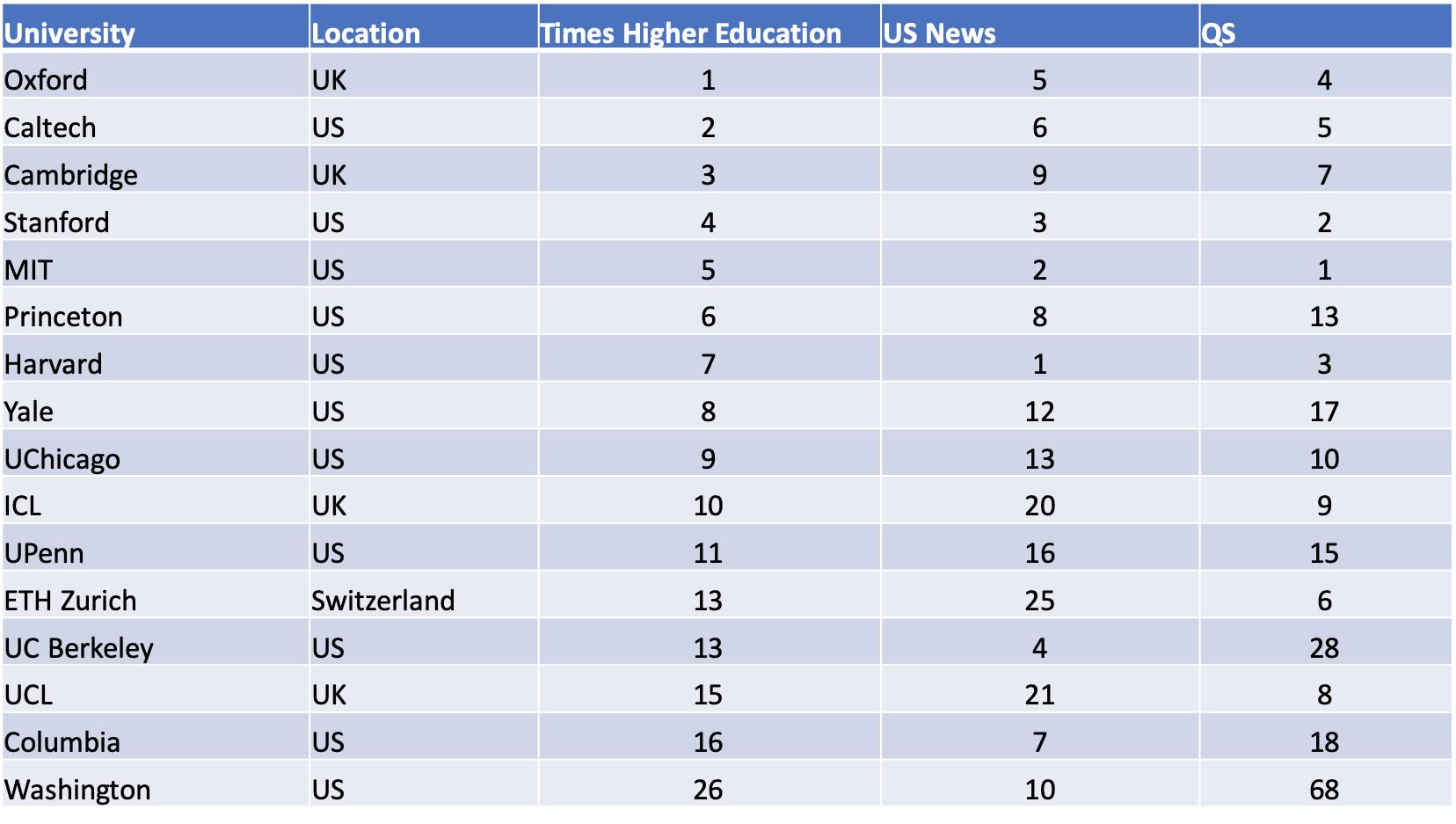College rankings fall short on an enticing promise. They take the ugly complexities of deciding where to study or teach and replace them with an illusion of objectivity.
If you’re like me, you look to data for clarity and guidance. Unfortunately, the data sometimes paints over nuances that are critical to great decision-making. (Lies, damned lies, etc.)
Putting aside macro questions about whether where one goes to college even matters, I contend that the major sources of rankings are unreliable. Using data from Times Higher Education (THE), US News, and QS, I present three arguments:
- Rankings are inconsistent
- Rankings are an aggregation of irrelevant factors
- There aren’t enough rankings
Rankings are inconsistent
This is the simplest reason why college rankings are unreliable. I collated rankings on the top ten global universities from three major sources:

Comparing 2020 Rankings by Times Higher Education, US News, and QS
The average standard deviation between rankings is** 7.1**. This figure is no doubt increased by some outliers, such as Washington University, which scraped its way into the top ten of the US News rankings, but placed 26th and 68th in THE and QS respectively.
Six universities placed within the top ten in all three lists, but even this group reveals massive discrepancies. Oxford, for instance, is the best university in the world according to THE, but doesn’t crack the top three in the other two lists.
Attempting to be more charitable, I decided to limit the scope of my search. All three sources provide global university rankings by subject. I chose to pull the rankings for economics, though it should be noted that THE listed the subject under ‘Economics and Business’, which is slightly different from US News and QS’ categorization of ‘Economics and Econometrics’.
#statistics #education #mathematics #data #college #data analysis